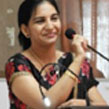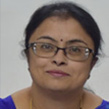Information Technology
The Information Technology department of P.E.S's Modern College of Engineering, Pune started in 2006 with an intake capacity of 60 students. This later increased to 120 from the year 2011-2012.
The department of Information Technology at P.E.S's Modern College of Engineering is one of the few professionally runs premier Institutes working for the accomplishment of a mission to develop skilled IT professionals, by offering value-based quality education. The Department has made rapid strides as department of excellence for providing modern technical education intensive and meaningful teaching methods as well as regular inputs from practicing corporate. To built-up individual initiative, creativity, talent, leadership and the capability to adopt new Technology the Department encourage the student and staff member to participate and organized the on regular basis seminar, work-shop and many other short-term courses. Our endeavor is to inculcate a desire for continuous improvement, a sense of healthy competition and sensitivity towards ethical and moral values.
The IT department is dedicated to uphold the following objectives: To develop conceptual and analytical skills in all functional areas of Information Technology, provide platform of high academic excellence to all students, encourage understanding of the strategic perceptions of the fast changing global scenario, develop the ability to understand and apply a multi-dimensional approach to achieve the overall mission of the organization and impart ethical and moral values for social well-being.
During previous year, faculty members have presented and published papers at National and International Conferences and in journals.
The department has seven fully equipped laboratories, with sufficient systems networked via professional servers like Windows 2003 server, backup server, Linux Server and Oracle Server. Multi-lab, Internet facility and high-end multimedia workstations help the students to prepare their projects and presentations. The IT department offers high speed LAN connectivity and 24x7 power back up to ensure uninterrupted working. The student computer ratio of 1:1 in the Institute ensures adequate practical training opportunities for all students.
The department has following laboratories:
- Software Laboratory-I
- Software Laboratory-II
- Software Laboratory-III
- Software Laboratory-IV
- Software Laboratory-V
- Software Laboratory-VI
- Hardware and Project Laboratory
- Computer Center
- Innovation Laboratory
The department has come up with outstanding academic results. Our student has achieved top rank (2nd) in University and many have got percentiles above 95% in GATE exam. They have scored well in GRE, TOEFL and have taken admissions for post graduate courses in India and abroad.
VISION
To develop proficient IT engineers for the Industry and Society.
Mission
- To achieve academic excellence.
- To develop students for being competent in dynamic IT environment.
- To encourage research and innovation.
- To inculcate moral and professional ethics.
PEO's
- Demonstrate sustained learning by building the profound foundation of math's, science and engineering principles and make the students erudite self reliant and adaptable to diverse culture of multidisciplinary environment.
- Prepare graduate with strong knowledge and skills in the field of Information Technology to develop solutions of complex engineering problems.
- To bring leadership skill with teamwork in continuous learning environment to bear with professional challenges.
- To inculcate ethics towards issues of professional and social relevance.
GOALS
Short Term Goal
- To organize national level conference, workshop.
- To enhance students participation in national and international events.
- To improve industry institute collaboration.
Long Term Goal
- To create entrepreneurial skills among the students.
- To promote faculty for research and publication.
Programme Outcomes
- Engineering knowledge: Apply the knowledge of mathematics, science, engineering fundamentals, and an engineering specialization to the solution of complex engineering problems
- Problem analysis: Identify, formulate, research literature, and analyse complex engineering problems reaching substantiated conclusions using first principles of mathematics, natural sciences, and engineering sciences.
- Design/development of solutions: Design solutions for complex engineering problems and design system components or processes that meet the specified needs with appropriate consideration for the public health and safety, and the cultural, societal, and environmental considerations.
- Conduct investigations of complex problems: Use research-based knowledge and research methods including design of experiments, analysis and interpretation of data, and synthesis of the information to provide valid conclusions.
- Modern tool usage: Create, select, and apply appropriate techniques, resources, and modern engineering and IT tools including prediction and modelling to complex engineering activities with an understanding of the limitations.
- The engineer and society: Apply reasoning informed by the contextual knowledge to assess societal, health, safety, legal and cultural issues and the consequent responsibilities relevant to the professional engineering practice.
- Environment and sustainability: Understand the impact of the professional engineering solutions in societal and environmental contexts, and demonstrate the knowledge of, and need for sustainable development.
- Ethics: Apply ethical principles and commit to professional ethics and responsibilities and norms of the engineering practice.
- Individual and team work: Function effectively as an individual, and as a member or leader in diverse teams, and in multidisciplinary settings.
- Communication: Communicate effectively on complex engineering activities with the engineering community and with society at large, such as, being able to comprehend and write effective reports and design documentation, make effective presentations, and give and receive clear instructions.
- Project management and finance: Demonstrate knowledge and understanding of the engineering and management principles and apply these to one’s own work, as a member and leader in a team, to manage projects and in multidisciplinary environments.
- Life-long learning: Recognize the need for, and have the preparation and ability to engage in independent and life-long learning in the broadest context of technological change.
Programme Specific Outcomes
- Graduate exhibits skills to analyze, design and develop software
- Graduate demonstrate technical competency and leadership qualities to work in multidisciplinary environment.













-SAMEER-Y.-BHOSALE.jpg)







